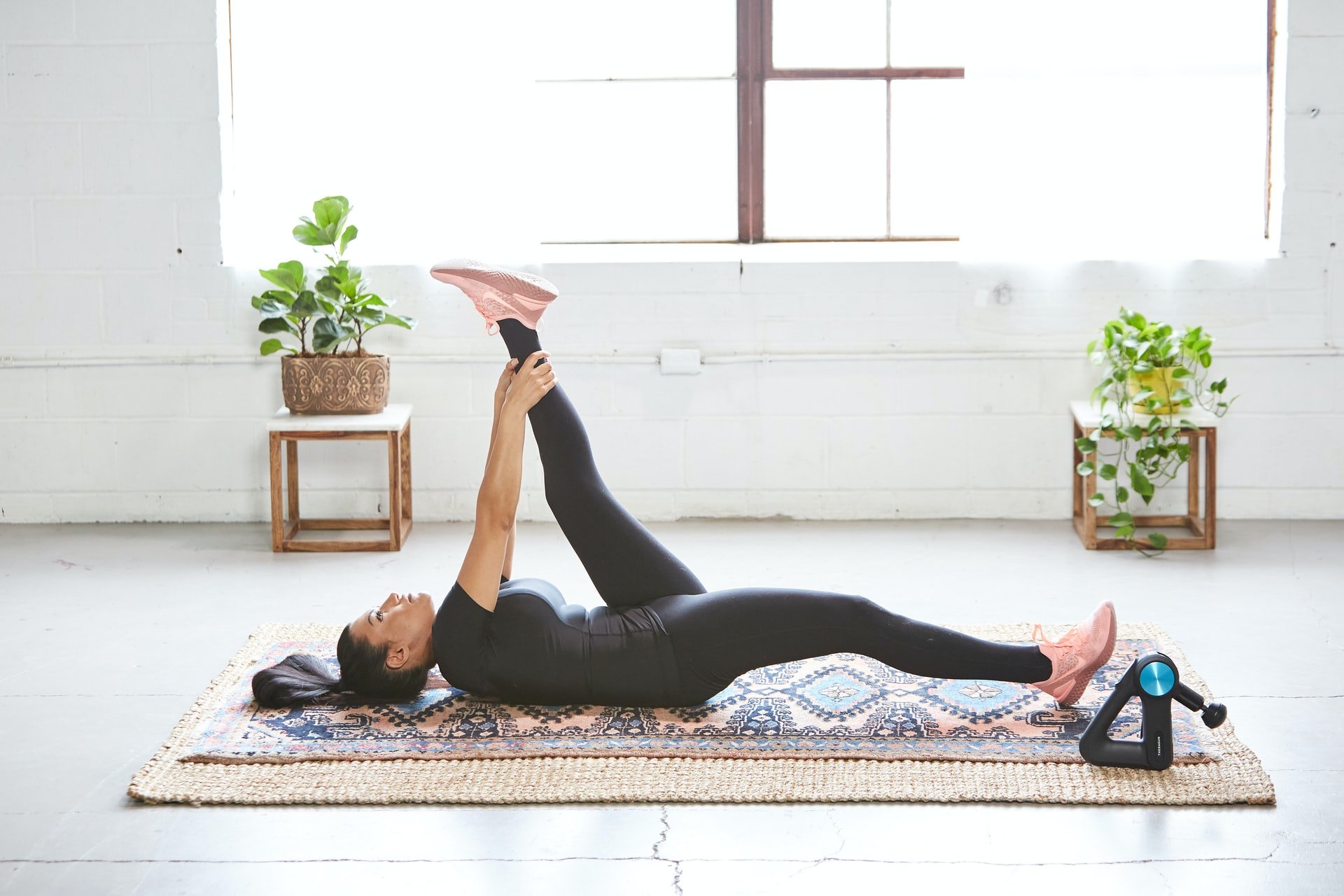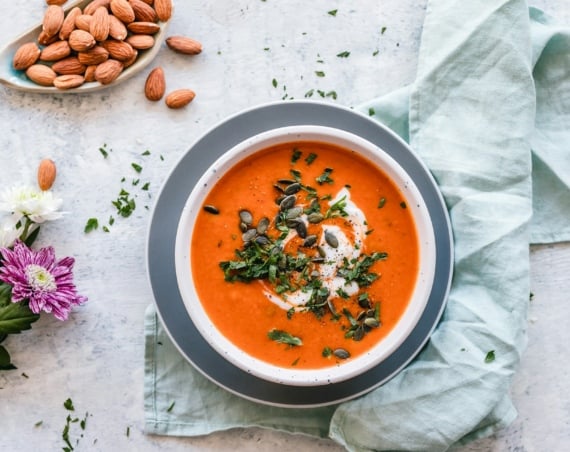Many people drink more water when the weather’s hot or while exercising. But in fact, staying well hydrated is crucial for your health year-round and at rest.
“Protein, fats and carbohydrates are commonly listed as the three macronutrients,” says registered nutritionist Jenna Hope. “However, there are actually four, and water is often left out as the fourth yet equally important macronutrient.”
We get it: if you’re not already in the H20 habit, the prospect of knocking back more water may seem like a chore. But trust us, it’s much easier – and more enjoyable! – to stay hydrated than you think.
And even if you’re never without your trusty water bottle, there are still some ways to improve your hydration level, whether you’re exercising in hot weather or chilling out at home in winter.
Staying hydrated could be one of the simplest but biggest favours you can do for your long-term wellbeing. We asked Jenna to reveal the whys and hows.

What are the benefits of drinking water?
Water plays a fundamental role in supporting our overall wellbeing on a day-to-day basis and in the long term.
Water has many roles in the body, including oxygen and nutrient transportation, removing waste products, respiration, body temperature regulation, nutrient absorption and metabolism.
What are the risks of not drinking water?

Your hydration status plays a fundamental role in supporting long-term health and daily productivity, energy and performance.
When fluid intake is low, there’s a greater risk of hypohydration (commonly known as dehydration). Evidence suggests just 1-2% hypohydration can often cause:
- Low energy, fatigue and lethargy
- Poor concentration and impaired cognitive function
- Dizziness and headaches
When we’re in this state, it can be common to mistake thirst for hunger and reach for those high sugar, higher fat foods – which in turn could lead to overeating.
How much water should I drink?
While the recommendations are to consume around eight glasses of water per day, drinking according to thirst may be more practical, as fluid losses can vary day to day and can depend on exercise output too.
If you’re feeling more thirsty after consuming the recommended eight glasses, increase your consumption. Equally, if you’re feeling satisfied at the end of the day but haven’t necessarily hit all eight glasses, that’s also ok.
Is drinking water the only way to stay hydrated?

Fluid can be consumed via drinks and high-water-content foods such as fruits and vegetables.
If you’re drinking more water, pay attention to the rest of your diet, too. In addition to fluid loss, sweat also promotes the excretion of electrolytes such as potassium, calcium, sodium and magnesium. These are required to help maintain fluid balance between the blood and the cells.
Consuming excess water without replacing these vital nutrients can pose risk of hyponatremia and hypokalaemia (low levels of sodium and potassium in the blood).
Ensuring that you’re eating fruits, vegetables, nuts, seeds and dairy (or alternatives) can help to reduce the risks of electrolyte imbalances in the body.
How often should I drink water?
Drinking water slowly throughout the day has also been shown to be more effective in maintaining hydration when compared to drinking a large amount in one go – otherwise known as ‘bolus drinking’.
Research shows that bolus drinking led to an increase in water excretion, while sipping gradually maintained hydration status.
What should I drink after a workout?

Evidence suggests that milk can be more effective at rehydrating post-workout than energy drinks. This is due to the protein and electrolyte content which helps to support fluid balance and maintain hydration for an extended period of time.
Does hydration really affect my performance in the gym?
In addition to general wellbeing, staying hydrated is also crucial for supporting exercise performance and output.
One study compared dehydrated cyclists with well hydrated cyclists. The results showed a significant reduction in performance output and an increase in core body temperature in the dehydrated group when compared with the well hydrated cyclists.
Easy ways to stay hydrated
Carry water with you
This may sound quite basic, but having a water bottle with you can really encourage you to drink enough, and can help with making sure you sip regularly throughout the day.
Opt for two portions of fruits or vegetables at each meal
Fruit and vegetables have a high water content, which can contribute to a positive hydration status. High-water-content fruits and veg include cucumber, tomatoes, celery and apples.
Try to limit caffeine and alcohol
Both caffeine and alcohol are diuretics and can contribute to dehydration. Choose herbal teas instead, and if you are drinking alcohol try to ensure you stay hydrated by sipping on a glass of water between drinks.
Many thanks to Jenna Hope – and for more easy ways to supercharge your health, discover what you should be eating pre- and post-workout.
References
Adams, J. D., Sekiguchi, Y., Suh, H. G., Seal, A. D., Sprong, C. A., Kirkland, T. W., & Kavouras, S. A. (2018). Dehydration impairs cycling performance, independently of thirst: a blinded study. Med Sci Sports Exerc, 50(8), 1697-1703.
Shirreffs, S. M., Watson, P., & Maughan, R. J. (2007). Milk as an effective post-exercise rehydration drink. British Journal of Nutrition, 98(1), 173-180.
Desbrow, B., Jansen, S., Barrett, A., Leveritt, M. D., & Irwin, C. (2014). Comparing the rehydration potential of different milk-based drinks to a carbohydrate–electrolyte beverage. Applied Physiology, Nutrition, and Metabolism, 39(12), 1366-1372.
Jones, E. J., Bishop, P. A., Green, J. M., & Richardson, M. T. (2010). Effects of metered versus bolus water consumption on urine production and rehydration. International journal of sport nutrition and exercise metabolism, 20(2), 139-144.
Find a club



